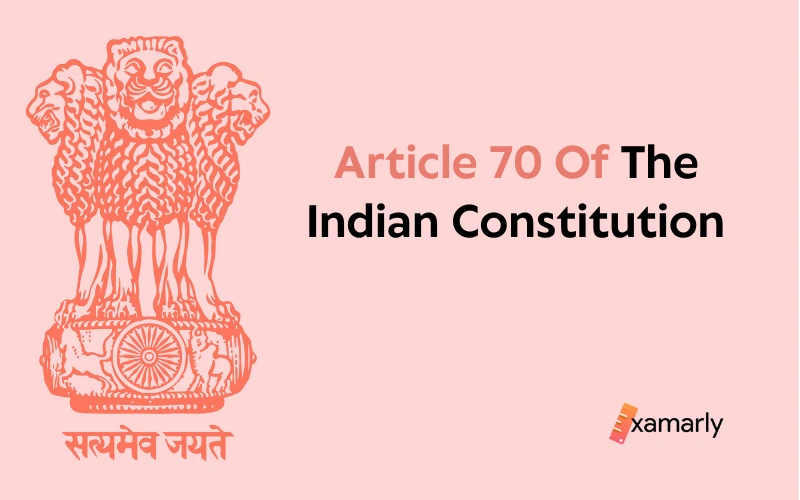Article 70 of the Indian Constitution mentions the discharge of the President’s duties in various scenarios. In some circumstances, the Parliament may enact a rule defining the President’s duties and responsibilities during his term in office.
This article aids in your UPSC preparation for Indian politics by providing you with educated insight.
Article 70 Of The Indian Constitution
According to Article 70, Parliament is given the authority to create any provisions it sees fit for future events or unforeseen circumstances that are not directly mentioned or addressed.
Constituent Assembly Debate
- Article 57 of the 1948 Draft Constitution, which is now Article 70 of the Indian Constitution of 1950, was indeed put forth and discussed on December 29, 1948.
- The President was given “residuary powers” at the time to exercise or carry out his duties in situations other than those stated.
- With the exception of one member who opposed the President’s residual powers and preferred that the Parliament regulate their use, there was little discussion on Draft Article 57.
- The President eventually received the aforementioned powers when the Article was ratified as constituted without any changes.
President (Discharge Of Functions) Act
The President (Discharge of Functions) Act, 1969, was enacted by Parliament in order to carry out the authority granted by this article. It stipulates that, in the event of a vacancy in the offices of both the President and Vice-President due to a death, resignation, removal, or another event, the Chief Justice or, in his absence, the senior-most judge available, shall fill the vacancy until the President resumes his duties or a new Indian Vice-President is elected.
Any individual who assumes the role of president or performs presidential duties has all the authority and advantages entitled to the president, including the right to receive all emolument, benefits, and allowances.
For further readings, check out the linked articles to prepare Indian Polity for UPSC Exam.
Conclusion
In any circumstance not addressed in this Chapter, Parliament may make whatever provisions it deems appropriate for the President to carry out their duties as stated in article 70 of the Indian Constitution.
FAQs
Before Article 70 Was Incorporated Into The 1950 Indian Constitution, Were Any Amendments Made?
Before incorporating article 70 in the Indian constitution, nothing has been amended.
When Vacancy Can Occur In The Post Of President?
The following scenarios can result in a presidential vacancy:
1. expiration of his or her five-year term.
2. he/she left via resignation
3. when he/she Died
4. through the impeachment procedure
What Are Residuary Powers?
The residual powers are those that exist but have no restrictions and are not mentioned anywhere. The residuary powers are held by the Supreme Law-Making Body of India, which is led by the President of India. It indicates that the Parliament has the authority to pass laws on issues not included in the list of State, Union, and Concurrent issues.






